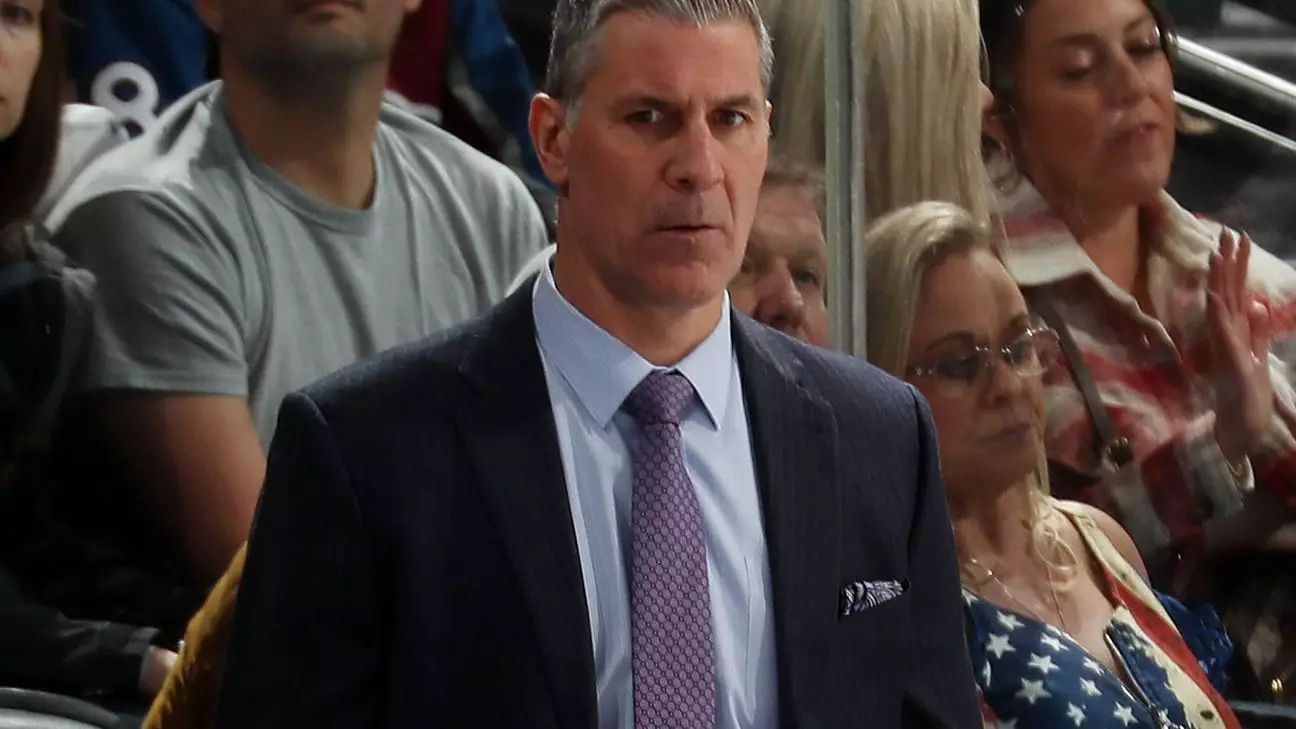The Colorado Avalanche’s recent comeback victory against the New York Rangers has prompted coach Jared Bednar to express disappointment, labeling the performance as “unimpressive.” It is curious how a team can claim victory while simultaneously underperforming. This duality underlines prevalent issues that, if left unchecked, could hinder the Avalanche’s ambitions for the season.
Coach Bednar’s critique illuminated a significant concern: the vast gap between player contributions. While the Avalanche secured their 14th comeback win with a goal from Devon Toews in overtime, the coach noted a concerning reality—too many players were not pulling their weight. His analysis revealed that only a subset of players was competing at a level required for victory, which suggests an alarming potential for inconsistency within the team dynamic. Bednar commented that it felt as if “only half a team was playing,” emphasizing the disparity in effort and execution among the players.
Mackenzie Blackwood emerged as a shining beacon of hope in an otherwise forgettable performance. With 27 saves, including key stops on potential breakaway goals, Blackwood’s standout effort garnered admiration not only from his teammates but also from his coach. Toews praised his goaltender for keeping the Avalanche competitive despite the significant number of scoring opportunities given up to the Rangers. This defensive fragility poses a significant concern moving forward; while Blackwood’s performance may mask underlying issues, it cannot be expected to save the team every night.
Despite individual contributions from players like Blackwood and gritty performances from Logan O’Connor—who assisted in securing the winning goal—the reliance on a few key players is troubling. Coach Bednar indicated that the team appeared overly dependent on a handful of guys to perform in critical situations, leading to an “all hands on deck” approach that puts undue pressure on the standout players. This reliance might ultimately stifle the development of the less prominent players, hindering their confidence and growth.
Bednar’s post-game comments hint at the crux of the problem: a lack of collective accountability. The coach expressed mixed feelings of annoyance and anger regarding the team’s performance in practice leading up to the game, suggesting that the lack of preparation contributed to the lackluster showing against New York. There is an urgent need for a systematic overhaul, focusing not just on individual talent but on fostering an environment where contributions come from all corners of the roster.
Ultimately, the Avalanche’s ability to build on this overtime victory will depend heavily on their commitment to team play. While overcoming obstacles may yield immediate results, sustaining success requires input from everyone. Bednar’s challenge lies not just in strategizing for future games, but in innovating the team culture—ensuring that every player feels the weight of their role in pursuit of a shared goal.


Leave a Reply